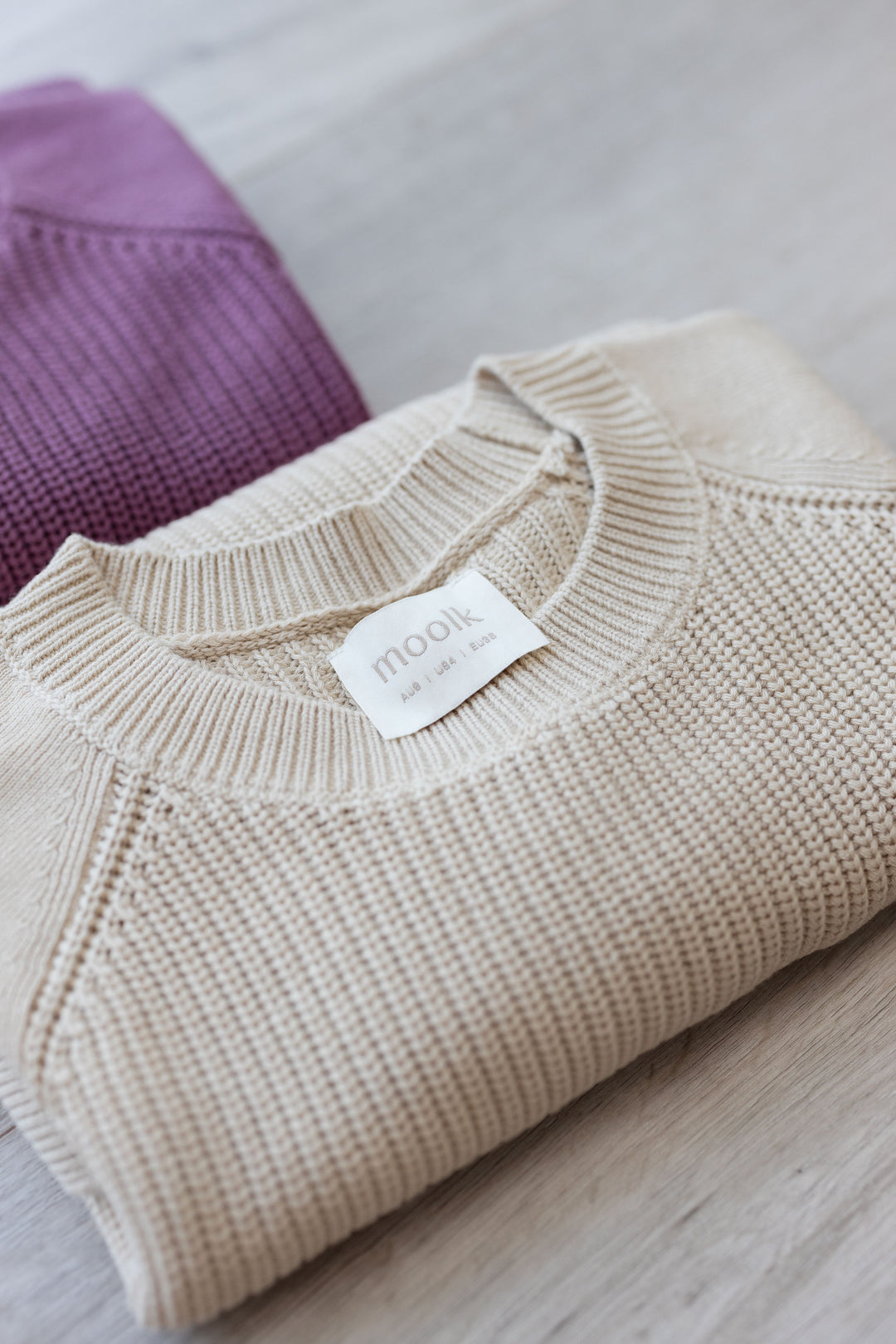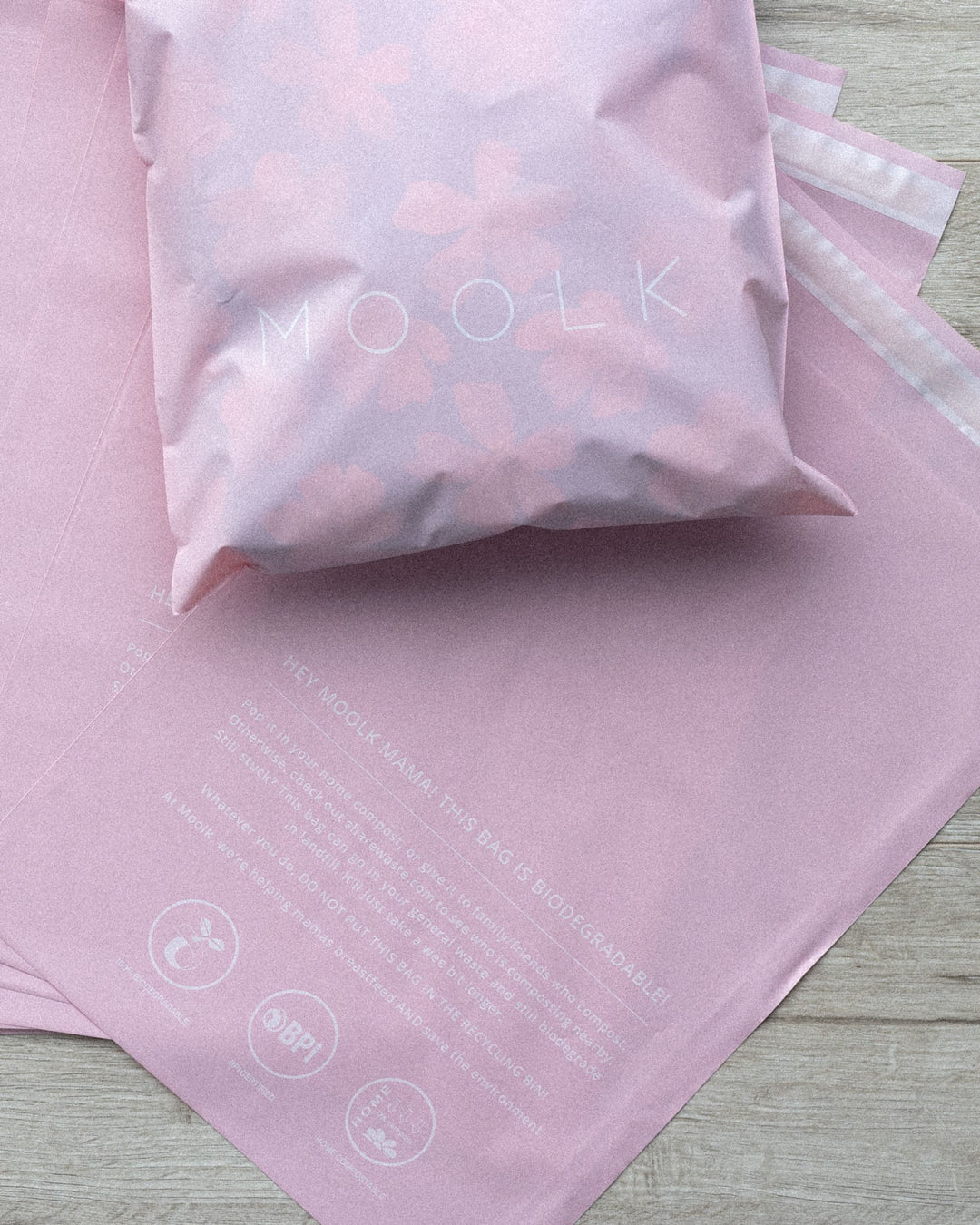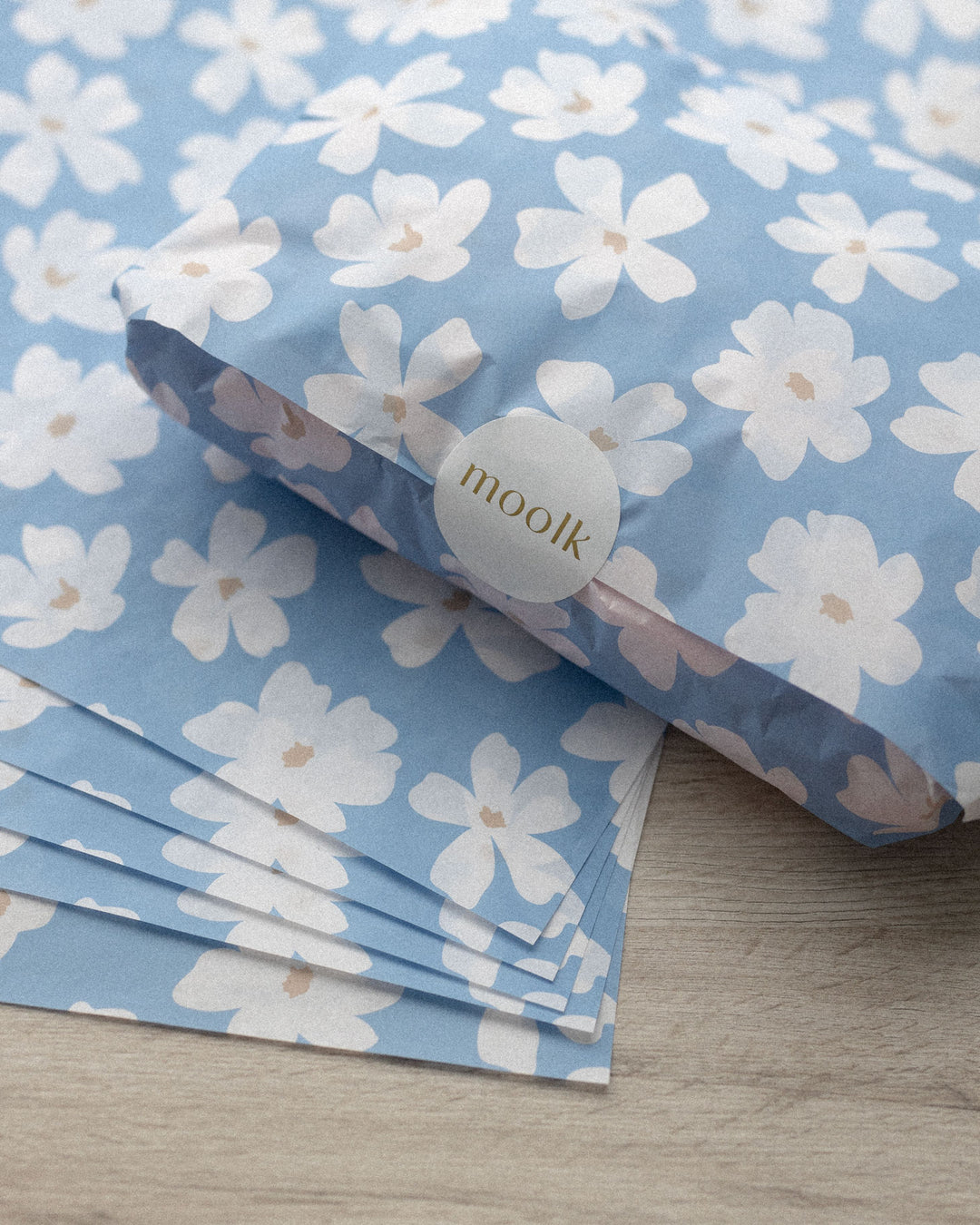“Be part of the solution, not part of the pollution.”
This isn't a green wash page. We are the first admit we're not perfect. But we're doing our damned best to make better choices for the future of our planet. One step at a time.
Plastics
Before we started manufacturing our own Moolk label way back in 2016-2018, we were sourcing wholesale labels. With this came a butt-load of plastic. Mountains and mountains of plastic poly-bags piled up in our tiny office, as each individual garment was sealed in its own plastic bag. It made me feel so uneasy as it went against my core values, I knew there had to be a better way.
I can proudly say we recycled every scrap of that soft plastic through Red Cycle collection centres, but I knew that wasn't good enough
Now that we're manufacturing, we have more control. We can make better choices. Not only over quality, fit and fabrics, but also in the amount of virgin plastic we're generating as a small business.
At first, that meant choosing to not individually poly bag our garments. Instead our lovely factory would pack up to 20 garments in 1 poly bag. To put it into perspective, for every 100 garments we made, we were only receiving up to 10 plastic poly bags. That's 90 poly bags that weren't being made and going into the environment. YAY! But those 10 poly bags were still virgin plastic. So we knew we could do better.
Now we're using a certified biodegradable poly bag. So we're almost down to zero virgin plastics entering our warehouse.


Biodegradable Mailing Bags
In July 2019, we made the leap from using virgin plastic mailing satchels to certified home compostable, biodegradable mailing bags.
Our mailing bags are proudly certified by Biodegradable Products Institute, OK Compost / TUV (Europe) and our supply chain complies ISO 14001, ensuring environmentally ethical production. In a commercial compostable environment, it will break-down within 90 days. At home, it may take up to 120 days. If it does end up in landfill, it will still biodegrade but will just take a wee bit longer.
They look and feel similar to virgin plastic, but they’re made from 70-80% PBAT (PolyButyrate Adipate Terephthalate: a co-polymer that is completely biodegradable and compostable leaving no toxic residues) and 20-30% PLA (PolyLactic Acid; a thermoplastic polymer derived from renewable resources like corn starch or sugar cane).
PBAT is a game-changer in the plastics industry, however we recognise it’s not the perfect solution to the world’s plastic epidemic. PBAT is partly derived from petrochemicals (aka oil aka not a renewable resource). But this is currently the best alternative and we believe it’s a bloody good start! And a heck of a lot better than using virgin plastics.
Eco-Friendly Tissue Paper
Acid Free
Our custom tissue paper is made from cellulose fiber, where the active acid pulp is eliminated during processing. It is also lignin- and sulfur-free, meaning that our ink won’t transfer from the tissue and the paper won’t leave behind any of these chemicals when decomposing.
FSC Certified
The FSC or Forest Stewardship Council certifies that the paper products that make up our printed tissue paper are sourced from a forest and supply chain that is managed responsibly and sustainably. FSC forest management standards are developed at an international level, and are then adapted to individual countries’ legal, social, and geographical settings, through national standards.
Soy-based Inks
Soy inks are an eco-friendly alternative to petroleum-based inks and they’re made from soybeans; a renewable resource. While soy inks are slower to dry than many inks, the process produces more vibrant colours as well as having the added benefit of not leaving behind petroleum based products when decomposing. Finally, soy inks have low levels of VOCs, reducing air pollution during the drying process.
Our tissue paper is also uncoated, so no micro-plastics left behind once the cellulose fibres have decomposed.




